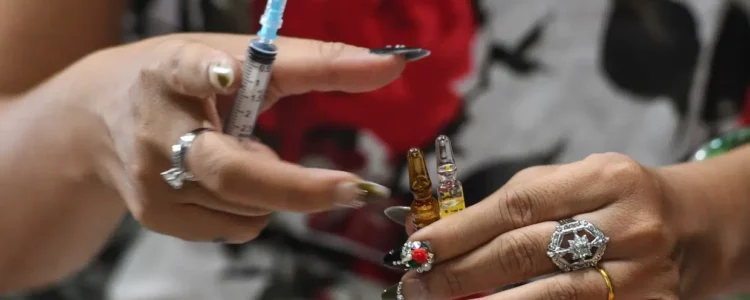In recent years, there has been a significant increase in awareness and understanding of transgender identities. For many transgender individuals, hormone therapy plays a crucial role in aligning their physical appearance with their gender identity. Hormones serve as a powerful tool to induce secondary sex characteristics and can bring about profound changes in the lives of male-to-female (MTF) and female-to-male (FTM) transgender individuals. In this article, we will explore the hormones commonly used by transgender individuals and the important role they play in their lives.
Hormones for Male-to-Female (MTF) Transgender Individuals:
- Estrogen: Estrogen is the primary hormone used by MTF individuals. It promotes breast development, softens skin, reduces body hair growth, redistributes body fat to a more feminine pattern, and affects emotional and psychological well-being. The feminizing effects of estrogen are essential for MTF individuals to feel more aligned with their true selves.
- Anti-androgens: Anti-androgens are often used alongside estrogen to suppress the effects of testosterone, the primary male sex hormone. By reducing testosterone levels, anti-androgens help to slow down or halt facial and body hair growth, prevent male pattern baldness, reduce muscle mass, and decrease libido. These changes assist in feminizing the physical appearance and overall experience of MTF individuals.
Hormones for Female-to-Male (FTM) Transgender Individuals:
- Testosterone: Testosterone is the primary hormone used by FTM individuals. It promotes the development of male secondary sex characteristics, such as facial hair growth, deepening of the voice, increased muscle mass, redistribution of body fat to a more masculine pattern, and clitoral growth. Testosterone therapy helps FTM individuals feel more connected to their gender identity and enhances their overall well-being.
- Progestogens: Progestogens are sometimes used in conjunction with testosterone to enhance certain masculinizing effects. They can aid in the growth of facial hair, contribute to muscle development, and increase libido. Progestogens can also help regulate menstrual cycles for individuals who have not undergone a hysterectomy.
The Importance of Hormones in Transgender Lives:
- Affirmation of Gender Identity: Hormone therapy serves as an affirmation of gender identity for transgender individuals. By inducing the physical changes associated with their identified gender, hormones validate their internal sense of self. This validation can lead to increased self-confidence, self-acceptance, and a stronger connection to their gender identity.
- Social Integration: Hormone therapy can significantly impact social integration for transgender individuals. As physical changes occur, they may experience increased acceptance and recognition from others, which can positively influence their relationships, interactions, and overall integration into society. Hormones can help transgender individuals navigate social spaces in a way that aligns with their gender identity.
- Improved Quality of Life: The effects of hormone therapy can have a profound impact on the overall quality of life for transgender individuals. By aligning their physical appearance with their gender identity, hormone therapy can improve self-image, body satisfaction, and overall happiness. It can also enhance the ability to participate in social activities, pursue professional goals, and engage in personal relationships with greater ease.
- Personal Empowerment: For many transgender individuals, hormone therapy represents a form of personal empowerment. By taking control of their own bodies and making choices that align with their gender identity, they reclaim agency over their lives. Hormones enable them to actively shape their physical appearance and feel a sense of ownership over their own narrative.
- Support for Transition: Hormone therapy is often an integral part of the transition process for transgender individuals. It can provide a bridge between their assigned sex at birth and their identified gender. Hormones can help them navigate the physical, emotional, and social aspects of transitioning, making the journey more manageable and facilitating a smoother transition.
Conclusion: Hormone therapy plays a pivotal role in the lives of transgender individuals, both male-to-female and female-to-male. Through the use of hormones, transgender individuals can align their physical appearance with their gender identity, alleviating gender dysphoria, enhancing psychological well-being, affirming their gender identity, improving social integration, and empowering themselves in various aspects of life. It is important to recognize and support the significant impact hormones have on the lives of transgender individuals, as they strive for authenticity, self-acceptance, and a better quality of life.
